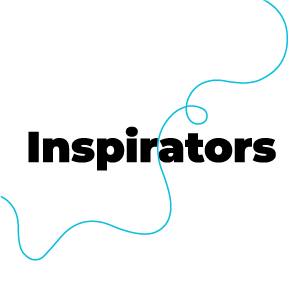Merata Kawharu
on Māori Wisdom
How are you making the strange familiar?
For Merata Kawharu, this was an easy task, as she had the clue right in front of her eyes the whole time. Her parents instilled this ability to befriend the unknown since she was a child:
“Anything is possible with hard work and passion. What may appear as challenges are, in fact, opportunities. When the present or future can seem uncertain or even strange, remember that you already have a toolkit of Te Ao Māori that will provide a frame. From that frame, you can see the whole world. It will also keep you focused on what is important to you. It will surround you with familiarity, so just embrace it. The essence of your iwi will make you resilient in the face of severe hardships.”
She comes from a family where education is highly valued, but grounded in reality, which led her to always carry this valuable piece of advice and do meaningful work. Inspired by her father, Sir Ian Hugh Kāwharu ONZ, an academic and paramount chief of the Ngāti Whātua Māori tribe in New Zealand, Merata took the regenerative path and became a social scientist, taught and published widely on indigenous entrepreneurship, Māori community sustainability and development, cultural heritage and world heritage. She has been a consultant to the United Nations and to UNESCO (World Heritage) and has held several governance roles on national boards, education committees and others in the private sector and community.
Merata works closely with Māori community leaders on developing climate change resilience plans and strategies as well as developing novel marae community-based food systems and markets. She is the director of Nukuroa Consulting, a Principal of Takarangi Research, and a Research Professor at the University of Otago.
Her current research includes “Innovations for Climate Adaptation”, a project that tracks innovations in governance and management that are being undertaken by mana whenua and local authorities as they adjust to making decisions for a climate-impacted future.
In recognition of her work with Māori, she was made a Member of the NZ Order of Merit in 2012.
Because we need more than understanding one another's perspectives, Merata collected her wisdom in her books that include: “Whenua: Managing our Resources, “Tahuhu Kōrero: The Sayings of Taitokerau”, “Maranga Mai! Te Reo and Marae in Crisis?” and “Whariki (co-authored with Paul Tapsell)”.
Discover Merata Kawharu’s insights, books and research and learn more about the valuable contribution of Indigenous peoples and their vital worldviews.
Thank you, Merata, for being a Resilient Spirit!
#INSPIRATORS QUESTIONNAIRE
Name: Merata Kawharu
Company / Institution: University of Otago
Title: Research Professor at the Centre for Sustainability; Author of Whāriki: The growth of Māori community entrepreneurship
Website: https://www.otago.ac.nz/centre-sustainability/staff/otago692779.html
LinkedIn profile: https://www.linkedin.com/in/merata-kawharu/
Country of origin: New Zealand
Country you currently live in: New Zealand
Your personal definition of Regeneration: Regeneration is about living in sync with the environment and the ecosystems around us, and supporting life systems to renew, restore and grow.
Main business challenge you face: Securing the human and technical resources to enable ambitious projects to be achieved.
Main driver that keeps you going: The desire to leave this planet in a better place, especially within a changing climate, by advancing the potential and the entrepreneurial edge of Māori people and values for New Zealand and for the world.
The trait you are most proud of in yourself: I never give up!
The trait you most value in others: Open-mindedness.
Passions & little things that bring you joy: Appreciating small things or acts, kindness, my kin communities, walking in the mountains, the outdoors.
The #inspirators who determined you to take the regenerative path: My parents and my ancestors.
A hint or starting point for companies or professionals that are taking the first steps in the regeneration journey: Start small, talk to many people, have clear goals, and make sure you have good support.
An honest piece of advice for young people who lose hope: Don’t give up. Keep looking for people who can support you, even if you haven’t yet found the right ones!
Places you travelled to that left a mark on you: Taputapuatea, other first nations countries, Nepal, the Mediterranean coast.
Global Regenerative Voices you recommend us to follow: Follow as many Indigenous approaches as you can.
Trends in Regeneration we should keep an eye on: Indigenous approaches.
Associations, business clubs, tribes you belong to – and why:
Ngāti Whātua, Ngāpuhi tribal groups, New Zealand.
Reasons to feel optimistic about our future in 2030: Communities are starting to become more active in regenerative activities whilst simultaneously responding to the challenges of climate change.
Reasons to feel pessimistic about our future in 2030: We need to do more. The government needs to better support regenerative community-led initiatives.
Regenerative Leadership qualities much needed today: I think leadership qualities in general are important, whether it’s for regenerative or other outcomes. These include soft skills like good listening, good communication and an ability to relate well with others because we need to pursue goals for better communities, lands, and the environment through collective effort.
Quote that inspires you:
“Do or do not. There is no try.”
(Yoda)
Your own quote that will inspire us:




